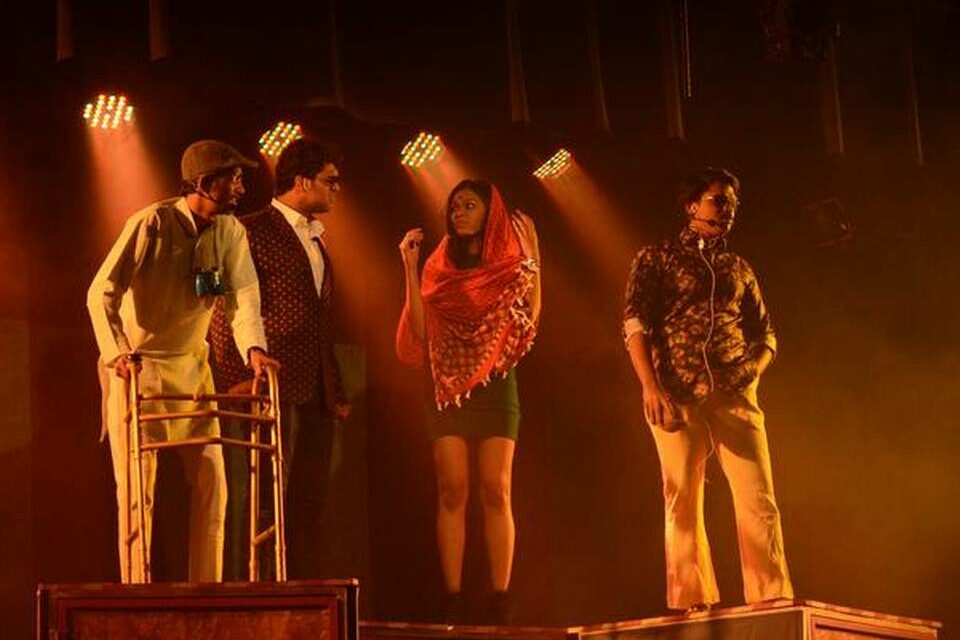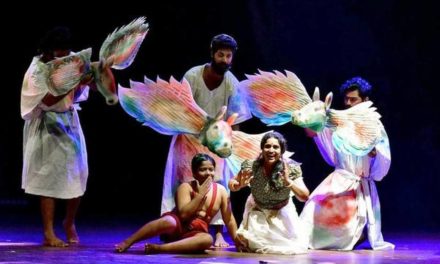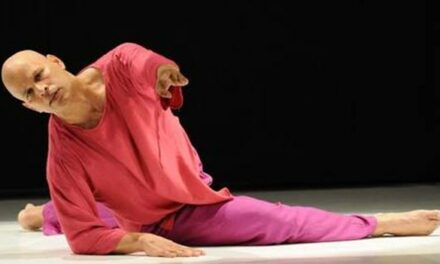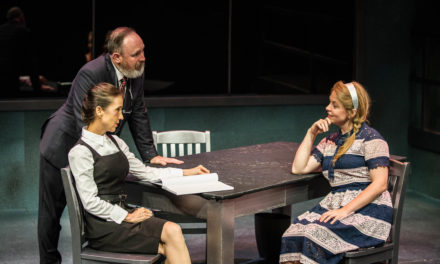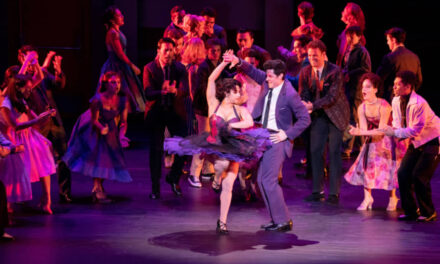The term ‘musical theatre’ might conjure up visuals of the Broadway-style extravaganza and its countless imitations, but it actually represents a spectrum of works in which music plays a defining part. In India especially, musicals are never of one kind and exist across an entire gamut of conventions and sensibilities, from the folk to the contemporary. This week, rather than high-kicking production numbers, it will be a lilting libretto by Rabindranath Tagore and the grungy indie vibes of the Pune-based band, DesiRiff, that will provide body, soul, and texture to two separate (and decidedly disparate) musical productions.
Desiriff is the rock quartet that accompanies performances of Theatre Flamingo’s Todi Mill Fantasy, a Marathi play set in a resto-bar that’s come up in a repurposed loom mill that once employed thousands. Live music is thus a part of its ethos, and unsurprisingly the band lists upcoming fixtures of the play as bona fide gigs. Directed by Vinayak Kolwankar, the play’s crooning narrator (Kapil Redekar) is very much a piece with the musical display. As the title might suggest, Todi Mill Fantasy deals with the battered aspirations of the working-class enablers of glitzy lifestyles. “It is the workers who erect the very edifices that they themselves cannot enter,” says Kolwankar, whose ideas and references for a play of class conflicts was fleshed into a fully fledged script by Sujay Jadhav. Many of the characters have familial roots in the erstwhile mill itself, a dire comment on how progress might pass by a vast swathe of a populace.
Excluding the band, it’s a seven-strong ensemble spearheaded by Shubhankar Ekbote, as watchman Ghantya Pavshe (a hashtag-worthy moniker if ever), and Pramitee Narke, who plays a model. In a two-story set, the two characters are holed-up in the toilet of the resto-bar for a portion of the play’s running time. Its premiere took place in Pune, and earlier this month, it was staged in Mumbai for the first time, at Matunga’s Yashwant Natya Mandir. “It’s a new-age commercial play for the youth and should find millennial takers in the same way rap music and stand-up culture have made inroads into the cultural space,” explains the director. Without any so-called big names, Kolwankar is relying on word-of-mouth publicity. This is a large-scale proscenium outing that is altogether different from his intimate immersive work, Read Me in 5D Zone, that only played for pocket-sized audiences, but he is confident of keeping the production afloat, and effectively tapping into his target demographic.
Coming to Tagore, his historical poem ‘Horikhela’, which has been described as a curious mix of folklore and nationalism, has been adapted into a Hindi play, Rang De, by Lakshika Pandey of the Shakti Ensemble, and will open at the NCPA, where Pandey has been running Chhau workshops this month. The play opens in good time for Holi and employs elements of folk theatre to recount the tale of the deposed queen of Kota, who sent a seemingly conciliatory invitation to marauding Pathans to play Holi with her courtesans. The latter were actually soldiers in disguise, so the festival of colors became the gory site of much blood-letting.
As stated in the play’s release notes, “Perhaps that is why music is used so generously in these tales, to soften the expression of bloodshed, and to highlight the beauty of the brave.” However, to strike a pacifist tone more fitting to these fractious times, and perhaps to blunt the poem’s valorizing of Rajput honor, Pandey has altered the ending to one that is sans the carnage of the original. Once again it is a musical quartet — Hetal Varia, Avi Upadhyay, Sandeep Shridhar, and Malhar Pradeep Phadke — that helms the play’s musical texture, using freshly composed songs as well as traditional tunes, all brought to life by an ensemble of eight.
This article was originally published in The Hindu on March 14, 2019, and has been republished with permission.
This post was written by the author in their personal capacity.The opinions expressed in this article are the author’s own and do not reflect the view of The Theatre Times, their staff or collaborators.
This post was written by Vikram Phukan.
The views expressed here belong to the author and do not necessarily reflect our views and opinions.

